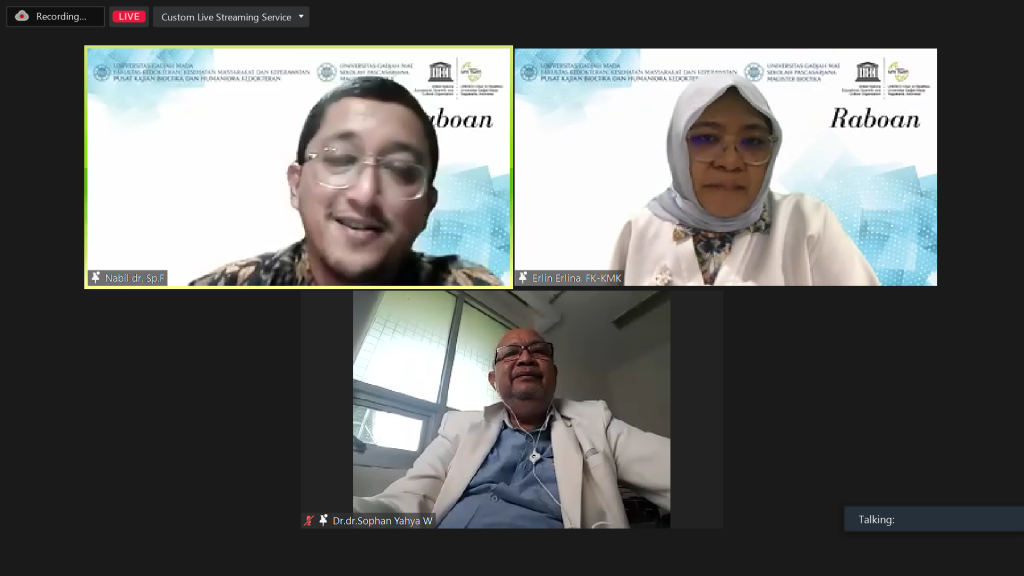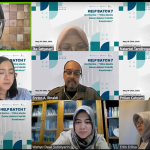Wednesday (14/09) the Center for Bioethics and Medical Humanities again held the Raboan Discussion Forum routine. On that occasion, CBMH FK-KMK UGM raised the topic of Hierarchical Problems in Medical Services. The topic was presented by dr. Nabil Bahasuan., Sp.FM., S.H., M.H from the Faculty of Medicine, Hang Tuah University, Surabaya. The event was moderated by Erlin Erlina, S.IP., M.A., Ph.D.
dr. Nabil explained that recently there is a stigma spread among the community that makes police doctors not trusted by the public. This is according to dr. Nabil can be explained by examining the hierarchical problem in police medicine and military medicine.
According to dr. Nabil, currently there are no definite regulations governing the authority of police doctors. In contrast to military doctors who are bound by a military oath, the current rules for police doctors are equivalent to civilian doctors and are bound by a doctor’s oath and the Kodeki (Indonesian Medical Ethics Code).
dr. Nabil explained that there are three examples of systems that regulate police authority in handling criminal investigations, namely the Coroner system, the Medical Examiner system and the Continental system. The Coronary System was implemented in England and its colonies. The system stipulates that the examination of criminal victims is handled by the coroner’s team. Meanwhile, the Medical Examiner team was applied in the United States, especially New York. The system stipulates that the examination of victims is handled by a Medical Examiner team consisting of specialist doctors. Meanwhile, Indonesia adheres to the continental system. the system stipulates that examinations of criminal victims are carried out by doctors appointed by the police.

Watch full video here





